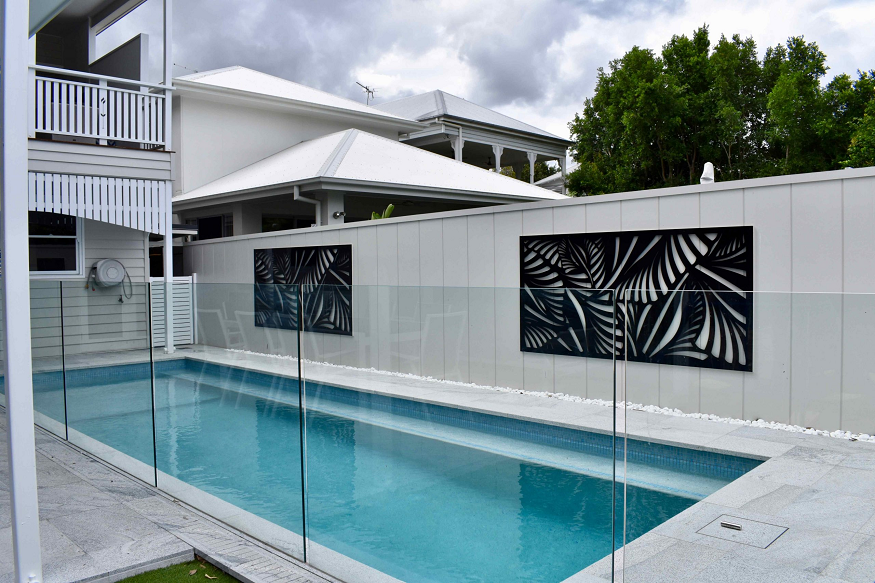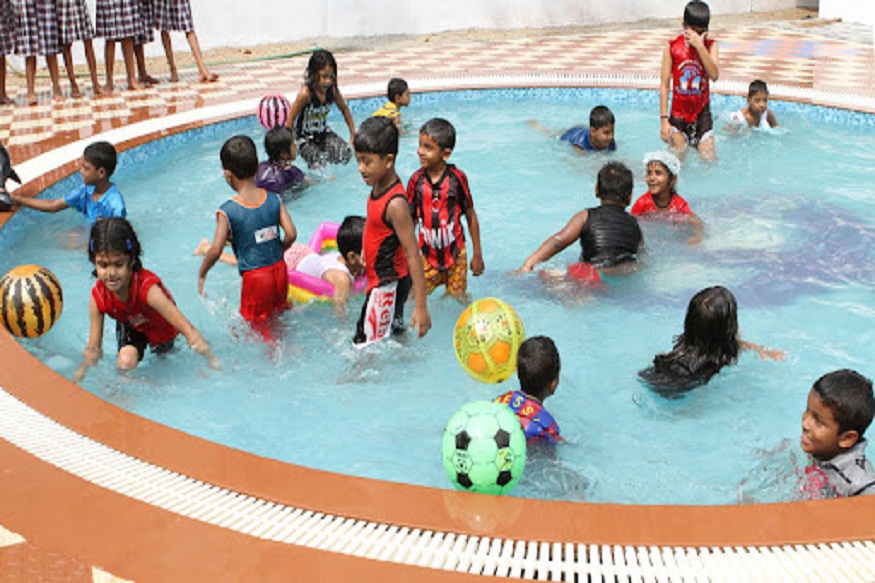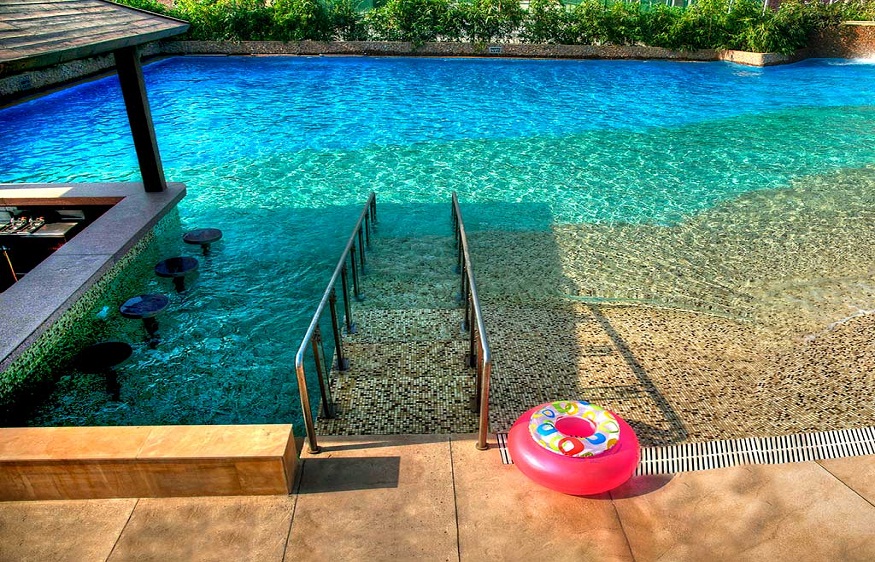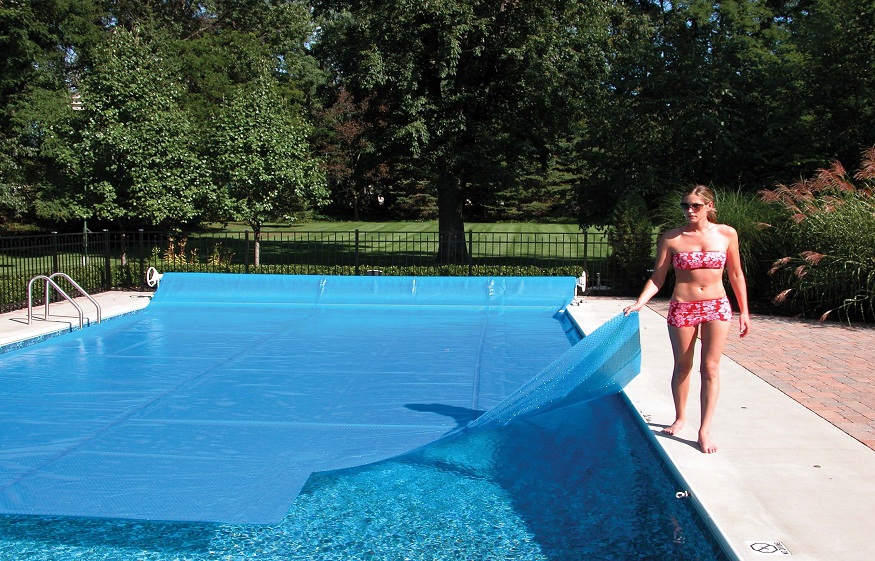
Having a heated pool can extend your swimming season, making your backyard a year-round retreat for the whole family. Whether you want to take a refreshing dip on a cool morning or enjoy a relaxing evening swim, a reliable pool heating system adds comfort and value to your home.
But with a variety of pool heating options available, it’s important to choose the solution that balances cost-effectiveness with your family’s needs and lifestyle. The upfront cost, ongoing running expenses, and environmental impact all play a role in determining which heating method is best for your pool.
This article breaks down the most popular pool heating options in Australia and helps you understand which is the most cost-effective for your pool.
1. Solar Pool Heating
Solar pool heaters are among the most popular and eco-friendly options in Australia, thanks to the country’s abundant sunshine. These systems use solar panels—usually installed on the roof or nearby—to capture the sun’s energy and transfer the heat to your pool water.
Pros:
- Low running costs because sunlight is free.
- Environmentally friendly, producing zero emissions.
- Long lifespan with minimal maintenance.
- Can raise pool temperature by 6–10°C on sunny days.
Cons:
- High upfront cost for installation and solar panels.
- Dependent on sunny weather; performance drops on cloudy or rainy days.
- May require a backup heater for cooler months or extended swimming seasons.
Cost-effectiveness:
Solar heaters offer excellent long-term savings, especially in sunny climates. The initial investment pays off over time through low energy costs. If you live in a region with consistent sunshine, solar heating is a smart, sustainable choice.
2. Heat Pumps
Heat pumps extract heat from the surrounding air and use it to warm your pool water. They work similarly to an air conditioner but in reverse, transferring heat from the air to the pool via a refrigeration cycle.
Pros:
- More energy-efficient than electric heaters.
- Can operate in moderate climates even when it’s not very warm outside.
- Lower running costs compared to gas heaters.
- Consistent pool temperature control.
Cons:
- Higher upfront cost than gas heaters.
- Less effective in very cold weather; efficiency drops below 10°C ambient temperature.
- Requires electricity to operate.
Cost-effectiveness:
Heat pumps strike a balance between upfront costs and ongoing energy savings. Over several years, they tend to be cheaper to run than gas heaters but more expensive initially. Heat pumps are a solid option for families wanting efficient heating without relying solely on the sun.
3. Gas Heaters
Gas heaters burn natural gas or LPG to heat your pool water quickly and reliably. They can warm your pool regardless of weather conditions, making them ideal for fast heating or occasional use.
Pros:
- Rapid heating capability.
- Works well in any weather, including cold or cloudy days.
- Easy to install and operate.
Cons:
- High running costs due to gas prices.
- Less environmentally friendly because of greenhouse gas emissions.
- Requires a gas supply connection.
Cost-effectiveness:
Gas heaters are generally the most expensive to run long-term but are useful for short-term heating needs, such as heating a pool just before use or extending swimming time into cooler months. If you only want to heat your pool occasionally, gas heating can be cost-effective in the short term. You can talk to your local pool builder in brisbane to see what they recommend for your setup.
4. Electric Resistance Heaters
Electric resistance heaters use electric coils to heat the water as it passes through the system. They are straightforward in design and easy to install.
Pros:
- Compact and simple to operate.
- Good for small pools or spas.
- No need for additional fuel sources like gas.
Cons:
- High energy consumption.
- High running costs.
- Not efficient for larger pools or long heating periods.
Cost-effectiveness:
Electric resistance heaters tend to be the least cost-effective for larger pools because of their high electricity consumption. They are better suited for smaller pools or spas where quick, short bursts of heat are needed.
5. Solar Pool Covers
While not a heating system by themselves, solar pool covers work alongside other heating methods by trapping heat in the pool water and reducing evaporation.
Pros:
- Very affordable and easy to use.
- Saves energy by retaining heat generated by the sun or other heaters.
- Reduces water evaporation and chemical loss.
Cons:
- Doesn’t generate heat, only conserves it.
- Must be manually or automatically removed for swimming.
Cost-effectiveness:
A solar pool cover is one of the most cost-effective ways to improve the efficiency of any pool heating system. It lowers running costs by preserving heat and reducing water and chemical loss.
Which Pool Heating Option Is Most Cost-Effective?
The answer depends on your climate, pool size, usage habits, and budget. Here’s a quick summary to help you decide:
- Best for sunny climates: Solar pool heating combined with a solar pool cover offers the lowest running costs and environmental impact.
- Best for moderate climates: Heat pumps provide a good balance of energy efficiency and reliable heating.
- Best for occasional use or rapid heating: Gas heaters provide fast heat but come with higher running costs.
- Best for small pools/spas: Electric resistance heaters are simple but costly to run for large pools.
- Complementary option: Solar covers improve heat retention regardless of your main heating system.
Additional Tips To Maximise Heating Efficiency
- Use a pool cover whenever your pool is not in use to retain heat and reduce evaporation.
- Maintain proper water chemistry to improve heater efficiency and extend equipment life.
- Consider installing a timer or automation system to control heating schedules and avoid unnecessary energy use.
- Ensure your pool pump is properly sized and maintained for optimal circulation and heat distribution.
- Regularly clean and inspect your heating equipment to keep it running efficiently.
Final Thought
Choosing the right pool heating option is key to enjoying your pool comfortably throughout the year without breaking the bank. Solar heaters and heat pumps lead the pack for cost-effectiveness in Australian conditions, especially when combined with a good solar pool cover.
While gas heaters offer convenience and speed, their running costs and environmental impact are higher. Electric resistance heaters are better reserved for small pools or spas due to energy consumption.
By considering your family’s needs, climate, and budget, you can select a heating solution that keeps your pool inviting and warm without unnecessary expense. And with proper maintenance and smart energy use, your pool heating system can deliver years of comfort and fun for your family.



